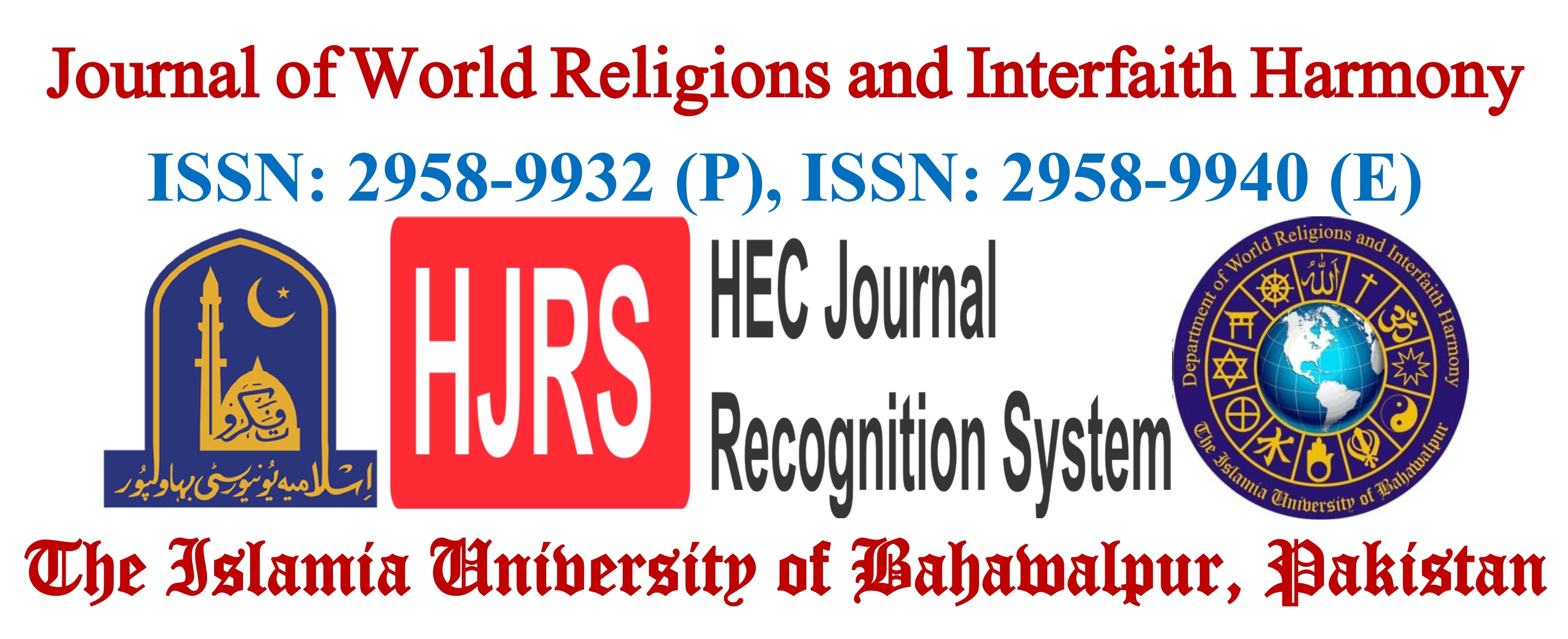The style of using Israeli traditions in Qur'anic Tafsir (Specific Study of Tafseer Majdi
DOI:
https://doi.org/10.52461/jwrih.v2i2.2309Keywords:
Israelism, Context of Inter-Religious, Harmony, Controversy, exegesisAbstract
Abstract
Israelism is the replication of the traditions and references seen in the exegesis of the Qur'an among the People of the Book. Except for the distinction between Ijaz and Atnab, the Holy Quran agrees with the Torah and the Gospel on several topics. These topics include ethical guidance, penalties, and the experiences of prior prophets, the miraculous acts of Hazrat Jesus, and more. While it is acceptable to consult them for confirmation of our religious and philosophical convictions, it is important to remember that the oral histories of past Ummahs mentioned in the Qur'an are meant to serve as guidance and teachings rather than as narratives. There exist three main techniques among subcontinental commentators when it comes to investigating and replicating Israelite traditions: 1) mere reproduction of Israelite traditions, wherein the contributors do not expose its falsehood, nor do they render it an issue. The Israeli narratives found in the Qur'an and Hadith have been cited by commentators as evidence. Two approaches have been utilized by the commentators to refute Israelism. The first is a cursory reference of the customs and a claim that one is exempt from them. This article will specifically examine Tafsir Majdi, a notable exegesis, within the framework of the Hebrew text interpretation. And in what way has Mu'azah al-Hasna been embraced to refute their false notions and demonstrate the veracity of Islam? It investigates how Tafseer Majdi encounters and analyzes these customs, illuminating their potential to have an effect on peace between faiths. The paper provides perspectives on how such beliefs foster shared comprehension as well as possible conflict in the context of different faiths by focusing on the subtle link between Israelism and Islamic exegesis.
Downloads
Published
How to Cite
Issue
Section
License
Copyright (c) 2023 Dr. Asma Shahid, Dr. Kalsoom Paracha

This work is licensed under a Creative Commons Attribution-NonCommercial 4.0 International License.






